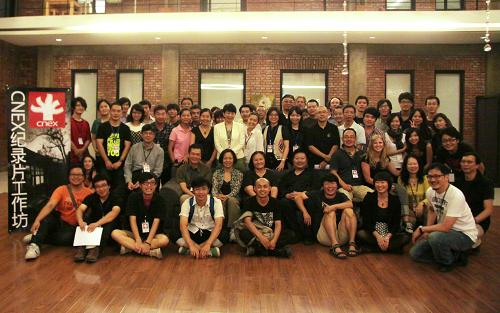The 5th Theme: YOUTH & CITIZENSHIP
Youth is like a bird that sets off from the treetops into the open sky.
For the bird, it’s the search for a home but also the uncertainty of the future; it’s the riddance of hesitation for the hunger for navigation; it’s trial-and-error for the pursuit of eternity; it’s the experience of self but also the baptism of a generation.
In 2011, CNEX will turn its focus to “youth” — not only “youth,” but rather the continuous exploration between youth and maturity, volatility and stability, individuality and collectivity. We have chosen to promote this theme in 2011 is because we have realized that a brand new Chinese society will emerge from the new generation.
The youth of this generation was born into the wealthiest Chinese society since modern times and an era of unprecedented openness; it was born in an era of globalization, interconnection and internet exchange; it was born in an era based on image rather than text; it was born in an era that expends its youth in Otaku manners, as “Strawberry” and “Moonlight” types, “Ant-izens,” and on World of Warcraft; it was born in an era that faces weakening industrialization, over-indulged financial games and the crisis of global warming; it was born in an era with no need for the 20th century passion to revolutionize, but the responsibility of pushing society, and in fact, the world, forward, that comes with one’s citizenship.
Citizenship is a branch that bears the weight of collective mind. This branch thus contains the marks left by the predecessors of this new generation, collected throughout a history of creation upon creation:
The 1st generation of young citizens: In 1911, the Revolution succeeded in overthrowing over 2000 years of imperial administration to establish the Republic of China. Shortly after, the young generation at the time proclaimed the birth of a new Chinese citizen with the May Fourth Movement. In Taiwan, young intellectuals devoted themselves to cultural associations and parliament petition movements. This was an illuminative citizenship moving in a single direction: the demand for science and democracy.
The 2nd generation of young citizens: In the mid 20th century, the Cultural Revolution, the Reform and Open policy, the Diaoyutai Island defense campaigns, and the baby boom generation impacted by the Tangwai Movement promoted the 2nd wave of a new-citizen movement: the unification of the economy with liberty. This was a citizenship with a two-way exchange: give me rights, I give you the power of GDP.
The 3rd generation of young citizens: Born at the beginning of the 21st century amidst low birth rates and raised in the waves of globalization, networking and mass specialization, this group of young Chinese, often classified as the ‘7th grade’ or ‘post-80’s,’ has experienced great events like the general election, the beginning of chartered direct flights between China and Taiwan, the handover of Hong Kong and Macao, the Olympic Games and the World Expo. This generation of young people is now facing climate change, resource shortages and economic crisis accelerated by past decades of industrialization as they step into their 30’s. In tending to their political and economical responsibilities, what kind of social, cultural, political and international personality should they forge for the next generation of Chinese? What are their needs? What will they create?
In 2011, CNEX will investigate the global Chinese youth generation: leaving the college campus, establishing a family, wandering through the city or returning to hometowns, renting or buying apartments, pursuing dreams or facing reality, and encountering various educational, medical, parental situations within their community, family, or village. As this generation begins to play an active role as a member of society, negotiating between purity and maturity, individuality and collectivity, tradition and future, what kind of social citizen will they become in the new era? And what kind of civil society will they then create thereafter?
We expect promoters of images, texts, and society to join hands as they focus their attention on the emerging, total transformation of China’s current zeitgeist.
**** **** **** **** **** **** **** **** **** **** **** **** **** **** **** ****
What we hope to see is not just motivation, wonder, humor, or propaganda; not just sympathy, critique, grumble, or mere observation of living conditions.
Regardless of the narrative technique or form of expression, we request that the content of the film be rich and diverse.
We hope that the director has empathy, insight, and tolerance.
We ask that the film is watchable, deep, and genuine.
We wish to see moving characters and stories with meaning that will also showcase the director’s individuality.
We request that the film reach a certain technical standard.
We hope the director will exercise deep considerations of theme, character, and the social value of the work: it is not only your personal work, but also your own opportunity to communicate and connect with an audience.
|
2011年度主題「青春與公民」影片提案入圍入選名單: 長片組 二十二名
短片組 七名
恭喜以上入圍導演,決審工作坊將於2010年9月初在北京舉行。 |
